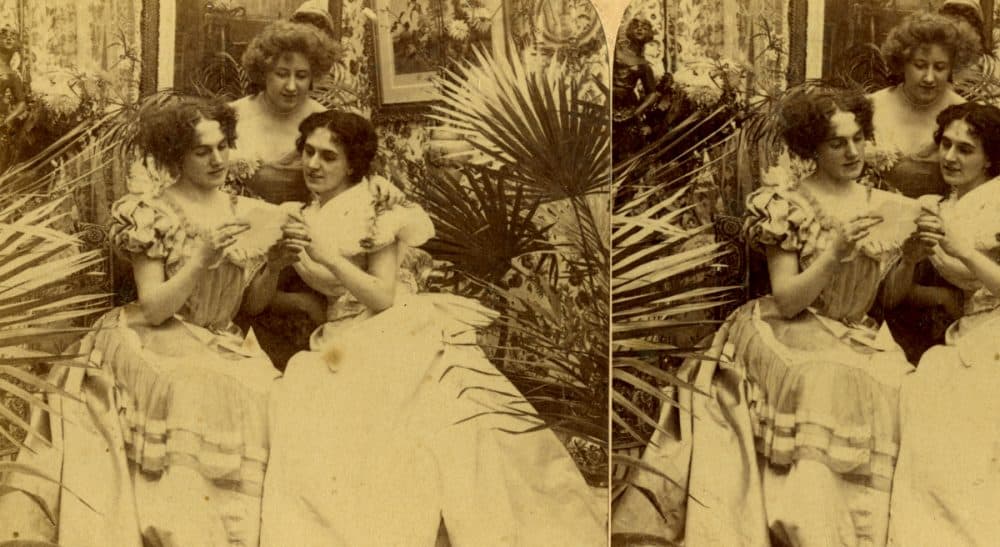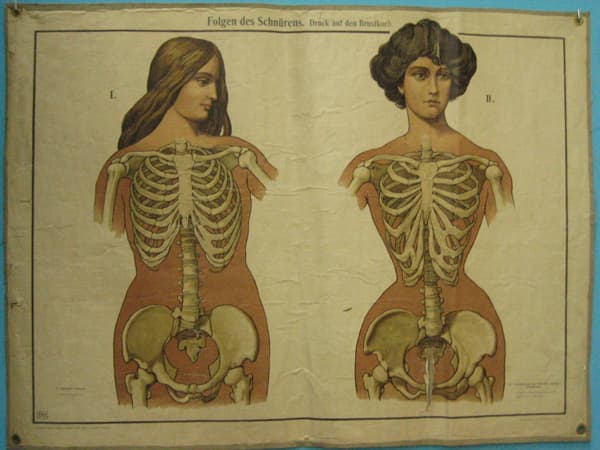Advertisement
The Problem Of Living In The Past

A couple years ago, my family and I spent a weekend living as Colonial Puritans at Plimoth Plantation in Plymouth, Massachusetts. We parked our car, then walked back in time — changing into garments of linen and wool, cooking over an open hearth, and bedding down on stiff hay mattresses for the night. It was just like being real Puritans! Except without smallpox. Or chamberpots. Or a persistent fear of the Devil.
In fact, despite the fact that we looked a lot like Puritans for a few hours (and ate like them for a couple of meals), my family and I will never know what it was really like to be them. We can’t. That time is gone, and we are products of our own era, no matter what we wear, how we cook, or where we sleep. And — I can say with certainty after wearing those itchy wools — I prefer it that way.
The Victorian era was not simply a collection of beautiful things. It was also a collection of attitudes, ideas, and customs, and many of them were problematic...
I thought about that when I read a recent Vox piece by Sarah Chrisman, a writer in Port Townsend, WA, who with her husband has embarked on an impressively detailed project — she’s turned her own house and daily life into a living museum of sorts. It truly is fascinating stuff — how is it to live without modern refrigeration? To wear corsets all day? To read by oil lamps? Here’s someone who’s actually doing it! And writing about it online! ...Wait a minute.
I don’t blame Chrisman for using a few technological perks of the 21st century. But I do take issue with the way she glosses over the less attractive qualities of Victorian life. She conflates her fascination with the stuff of the Victorian Era into musings about what life was actually like, leading the reader to believe people had it better then: “Absorbing the lessons our artifacts teach us shapes our worldview. They are our teachers. Seeing their beauty every day elevates and inspires us, as it did their original owners.”
The Victorian era was not simply a collection of beautiful things. It was also a collection of attitudes, ideas, and customs, and many of them were problematic — to say the least. Chrisman doesn’t say a word about class, race or gender politics.

We know Chrisman wears a corset; she never tells us whether she votes. We know she brushes her teeth with a replica antique toothbrush; does she avail herself of modern dentistry? She speaks stirringly of how her husband watched her “blossom into her true self” when she began dressing in 1880s fashion; she doesn’t reveal whether that true self works with the many limitations placed on women in the 1880s — important details such as working outside the home, pursuing degrees in multiple fields, owning property. When it came to constricting women's movements in the 1800s, corsets were the least of it.
I get wanting to wear long skirts and ride a replica bike — I really do. But to couch it in a philosophical stance that people’s lives were somehow nobler, richer or better than they are today is silly at best, and fuels retrograde politics at worst. Let’s count just a handful of ways life is appreciably better for many people today than it was 130 years ago: We’re post-Jim Crow. We’ve got antibiotics! Women have a voice in politics. Same-sex couples can exist openly — let alone marry!
Advertisement
Yes, there are plenty of new scourges that are specific to our current era. But social progress in our country has generally marched in one direction, and while there’s a lot more work to be done in areas of race, sexism and class, it’s better to be a woman, person of color or queer person today than even 20 years ago, let alone the 19th century.
I suspect it’s a human impulse to idealize the past ... just as many of us tend to picture our childhoods with a gauzy overlay.
I suspect it’s a human impulse to idealize the past. It’s easy to look back and assume things were simpler then, just as many of us tend to picture our childhoods with a gauzy overlay. But children’s lives are just as complicated as adults’ — in many cases, more so, since they are by definition at other people’s mercy. And show me just about any past epoch, and I will show you a daily existence that was harder on almost all metrics.
Chrisman finished her essay by noting that the hardest thing she’s coped with has been other people’s reactions. She was referring to people gawking on the street and making unkind comments. I suspect if I saw her on the street, I would assume she was doing some kind of performance art, but even if I thought she was just plain nuts, that would be no excuse for making her feel uncomfortable or unsafe. But she may not realize that a big part of people’s reactions to her have nothing to do with her lifestyle choices, which are hers and hers alone — only what she’s leaving out of her story. Please be careful when you suggest to me that things would have been better a hundred years ago — too much work has gone into changing the world we live in today. I might be convinced to wear a long swishy skirt, but that’s where it’s got to stop.
